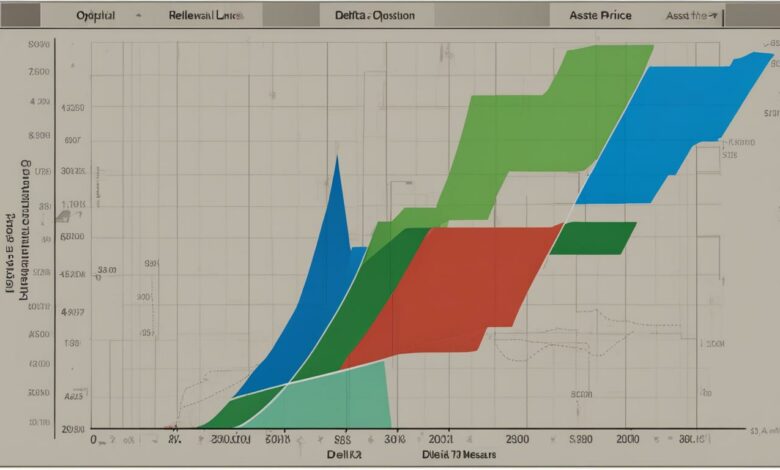Understanding Delta in Options Trading

Delta is a key metric for options that traders use to analyze risk and predict price movements. This article deals with what Delta is, how it’s calculated, and how it is used.
What is Delta?
Delta is a measure that compares the change in the price of an underlying asset with the change in the price of a derivative or option.
- Delta is essentially a theoretical estimate of how much an option’s value may change given a $1 move UP or DOWN in the underlying security.
- The Delta values range from -1 to +1. A Delta of 0 represents an option where the premium barely moves relative to price changes in the underlying stock.
- It’s one of the four primary measures, known as the ‘Greeks,’ that options traders use for risk analysis. The other three are gamma, theta, and vega.
How is Delta Calculated?
The formula for calculating Delta involves dividing the change in the value of the option by the change in the value of its underlying stock.
Mathematically, it is represented as: Delta = (Of – Oi) / (Sf – Si), where Of is the new value of the option, Oi is the initial value of the option, Sf is the new value of the underlying stock, and Si is the initial value of the underlying stock.
For example, if a stock goes up by $1 and you have an option contract with a Delta of 0.5, the option price will increase by 50 cents, or $50 per contract. If you have a Delta of 0.3, then the $1 stock move should cause the options contract to increase by 0.3, or $30 per contract.

Delta Values and Interpretation
When trading options, it is essential to understand the concept of delta and how to interpret its values. Delta is a ratio that measures the sensitivity of an option’s price to changes in the price of the underlying asset. It ranges from 1.0 to -1.0 and provides valuable insights into the potential profitability of options positions.
Different delta values are associated with options that are at, out, or in the money. An at-the-money call option typically has a delta value of around 0.5, indicating that it is equally likely to move in line with or against the underlying asset’s price.
Interpreting delta values enables traders to evaluate the potential profitability of their options positions and assess the probability of the option being in-the-money at expiration.
For instance, a Delta of 0.40 is taken to mean that at that moment in time, the option has about a 40% chance of being ITM at expiration.
| Option Type | Delta Value | Interpretation |
|---|---|---|
| At-the-Money Call | 0.5 | Equally likely to move with or against the underlying asset’s price |
| Out-of-the-Money Call | Less than 0.5 | Price less influenced by changes in the underlying asset’s price |
| In-the-Money Call | Greater than 0.5 | Stronger correlation between price and the underlying asset’s price |
| Put Option | Negative value | Inverse relationship with the underlying asset’s price |
Key Takeaways
- Delta measures the change in an option’s price for a $1 move in the underlying asset.
- A delta value ranges from 1.0 to -1.0.
- Delta values differ for options at, out, and in the money.
- Delta plays a crucial role in assessing stock sensitivity.
- Delta is part of important options statistics, called the Greeks.







